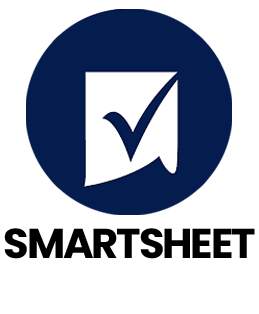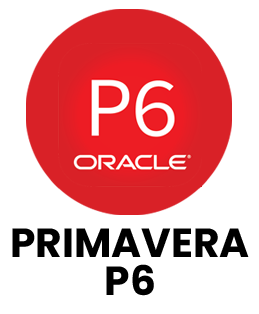Project management experts are required to carry out the work. In a field where skills, experience, and knowledge are rapidly changing, a credential like the PMP can help you stand out. There is a globally recognised project management professional certification from the Project Management Institute (PMI) that helps advance careers. This programme has nothing to do with any standard, methodology, or organisation.
It is capable of assessing potential project managers' abilities and personal traits. There is a "bright future for project professionals," according to PMI.org's "Project Management Job Growth and Talent Gap: 2017–2027" report, with an expected increase in job openings, competitive pay, and the chance to make a difference. Companies are on the lookout for people with project management certifications.
Additional Info
Introduction
The Project Management Professional (PMP®) credential is widely regarded as one of the most valuable certifications for IT and other specialists. This course, Introduction to Project Management & the PMP® Exam, will teach you whether earning a PMP® is the right choice for your career development, what prerequisites must be met before taking the certification exam, what to expect from the test and how to compile and submit your application.study materials, including exam objectives and the PMBOK® Guide, Sixth Edition.Those who pass the PMP® exam and complete this and the other courses in the series will receive continuing education credit.
In the next section, you'll learn about key project management principles that will help you tell project management from the normal daily demands of running an organisation. You'll also learn about the various topics covered on this learning path during this introduction.
Skills in PMP
1.Leadership Qualities Needed for Successful Project Integration and Scope Management:
A project manager's role is critical in any industry with multiple cross-functional teams from various geographical locations working on a single project.A good project manager must set the vision for the entire project, get it started in the right direction, control the flow by motivating the team to achieve their goals, and encourage collaboration.Defining and documenting the project scope and communicating the expected deliverables to all cross-functional teams ensure a high-quality project.
2.Risk Assessment and Management:
Industries all over the world outsource their needs to ensure efficient project execution and to reduce the need for additional specialised investments.. It takes a great deal of coordination between the various teams working on the project to keep it on track. A project manager must anticipate the risks associated with any unexpected obstacles, such as miscommunication between remote working groups or supply chain management issues, and take appropriate proactive measures to prevent or reverse the damage as early as possible.
3.The Art of Managing Time:
The preparation of a task list with sequential and collaborative activities based on a clearly defined scope helps better estimate the time required to consolidate the overall project deliverables. Making better budget-oriented decisions and avoiding execution bottlenecks are all aided by having a good time plan. Project management software and online tools available on the market can be used to create an activity plan chart with clear milestones for a project that is detailed and well-structured. A PMP certification can assist project managers in better understanding this.
4.Aligning the procurement process with the company's internal operations:
A project's biggest challenge is to ensure that procurement is in line with internal deliverables and maximises overall project performance efficiency and scope delivery, regardless of whether the project is internal or external. A PMP oversees suppliers to ensure that workflow is not disrupted and that logistics and supply chain execution go smoothly.
Managing the Costs:
A clear definition of the project's scope with attainable milestones will help with cost estimation. As a project manager, you're in charge of determining the budget needed for each milestone and making sure it's in line with the stakeholders' overall budget. There should be frequent internal audits as the project progresses to ensure that the expected scope is delivered without going over budget..
A professional project management certification course will give you the knowledge you need to choose the best tool to achieve your goal. A professional project management certification course and a variety of commercial budget planning spreadsheet tools are both readily available online.
6.The ability to interact and communicate with others is a crucial skill.
Effective communication channels between the various process teams and with stakeholders will be critical to the project's success. Deliverables, budgets, and deadlines for each team must be kept up to date. In addition, a project manager must identify and resolve any conflicts that could disrupt the project's flow, such as scope deviations or activity lags. It is crucial to plan one-on-one interactions and team meetings with a clear goal in mind, as well as proper documentation of the conclusion and the use of the appropriate communication channel to convey it to the relevant teams.
7.The project's quality assurance procedures include the following steps:
The quality guidelines for a project should be established early on to ensure complete satisfaction of all stakeholders. The avoidance of unnecessary delays in the project flow will be made easier with proper documentation of each project milestone and coordination with stakeholders. Combining the best project management certification with the ability to write a comprehensive business case study that compiles lessons learned from previous projects will improve a project manager's resume.
8.Knowledge of the technical aspects of an issue:
Gone are the days of manually creating a Gantt chart spreadsheet. Cloud-based software and solutions are now being used by project managers all over the world to improve team communication and collaboration. Post-Covid, text messaging apps have largely replaced traditional emails as the primary method of communication.
A project manager must first identify the problems to be solved before deciding on a tool.In order to ensure that a project is completed successfully, PMPs identify and define scope effectively, combine and collaborate with various project activities and resources.
Key Features of PMP
- 35 hours of live virtual instruction.
- This course will be delivered by a PMI-approved training partner (PMI - ATP).
- The PMI has given their blessing.
- Downloadable PMI digital content is available.
- Course Completion Certificate awarded to students who successfully complete the course.
- Instructors who hold PMI certification.
- There's a 30-day money-back guarantee.
- Help with the PMP application template is required.
Career path of PMP
Getting a high-paying job in project management is a thrilling experience. According to PMI, earning a PMP certification can lead to a lucrative career. A career as a project manager is the most common starting point for PMP professionals on their path to certification. People with a project management certification can work as project schedulers, coordinators, and office directors, amongst other positions.
Agile project managers and scrum masters are PMI-ACP certified. In general, more experienced project managers work on many different projects at the same time. In addition, they create and manage solid corporate portfolios. Regulation compliance and implementation coordinators work alongside value-based engineering coordinators in the risk management field. Industries in need of certified project managers include healthcare, civil engineering, and financial services.
Existing PMI credential holders must renew their credentials rather than apply from scratch. Renewal of certification ensures that project management professionals' skills remain current. Your PMP certification career path will be well-lit if you follow PMI renewal rules.
Posts Related To:
Posts on the subject of :
- How Much Will a PMP Certification in 2021 Cost?
- PMP Certification Pay in 2021
- PMP Exam Interview Questions and Answers
- Project Management Exam Questions and Answers for Professionals (PMP)
- How many people will pass the PMP exam in 2021?
- Renewal Instructions for PMPs in 2021
- Eligibility for the PMP certification in 2021
- PMP Exam Format Explained
- Objectives for PMP Certification Training
- A guide to the 2021 PMP certification process
- Is the PMP certification still relevant in 2021?
- Training for the PMP Exam
Roles and Responsibilities of PMP
1. Estimating costs and assessing customer satisfaction:
Any product or service innovation will only be successful if a precise cost estimation is carried out by either a bottom-up or a top-down approach. A project manager can use a bottom-up approach to divide a project into units and calculate the cost of each unit based on cycle time, resources used, cost per person, and other metrics. The budget for the project is determined by multiplying the cost per unit by the number of units to be produced. Top-down estimation is a broader approach that takes into account major expenditure categories, recurring and non-recurring expenditure, and other variables.
2. Identifying and Resolving Issues:
In project management, a risk is anything that happens "not according to plan," and any competent project manager knows this. This unanticipated development could be beneficial or detrimental to the project's success. To manage risk, you must be ready to deal with it when it arises.
Project manager responsibilities must emphasise the importance of listing risks as potentials that could become realities if they are not to become major issues. When working on a project, you're bound to run into problems that can't be solved until threats are identified, prioritised, and planned for.
3.Activity and Resource Scheduling:
A project manager summarises the tasks that go into a project's activity in addition to outlining the work structure. The project manager's role is to match the project's numerous tasks with the available funding.
When project managers plan meticulously and closely monitor the progress of work groups, they can uncover resource waste and redeploy it to better use or utilisation. This holds true for all resources, whether they be human, physical, technological, or natural. As a result, the project manager becomes a Tracker at some point during the project.
4.Scalability, interoperability, and portability are all important factors to keep in mind:
To begin, a project manager should quickly determine whether a system or process used to carry out a project can be "sufficiently" scaled to meet customer requirements.
Second, project managers must be able to determine if an organization's software and hardware components can be configured differently to enable various capabilities. Identifying whether or not a programme or process can be easily ported to another operating system is also crucial.
5.Documentation and reporting:
When so many people are working to bring a concept to life, the only way to keep things organised and focused is to have a system in place for tracking and reporting every little detail. Documentation includes time sheets, schedules, correspondence, and photographs, all of which, when preserved, serve as evidence, summarise efforts, and serve to highlight the project.
One of the project manager's responsibilities is to make sure that all tasks and contributions are documented for future use, both during and after the project's gestation.
6.communication:
It is not enough for a project manager to record and document project details; it must be done in such a way that stakeholders and anyone else interested in the project understand every nuance.
An additional project manager duty is to set up the proper modes of communications (such as telephones and facsimile machines), multiple channels (such as emails and memos), and message structures (such as "why," "what," "where," "when," and "who") to ensure effective communication.
Industry Trends of PMP
- Motivation will no longer come from a steady paycheck, but from appreciation, a sense of belonging, and the sense of being appreciated. Millennials will also make up a larger percentage of project teams in all industries.
- SMBs and large MNCs will both invest even more in offering their staff with suitable training and certification courses to help them tackle dynamic and complex projects.
- With a dynamic and complex environment, larger organisations must learn and adapt quickly in order to deliver benefits. They will accelerate their transition from Waterfall to Agile Project Management.
- All-rounders, strategic thinkers, and project dependencies-focused managers will be in high demand in the project management profession.
- Project managers will be under more pressure than ever before from external stakeholders and will have to be more innovative to meet strategic objectives by thinking outside the box.
- The more project thinking is woven into a company's operations, the more project-oriented it becomes.
- With the commercial sector moving toward "agile," "flexible" working environments, the ability of a Project Manager to understand and effectively communicate change management principles will become almost mandatory. In today's competitive commercial business world, companies must now provide a "experience" rather than simply a place to sit and work.
- Agile Project Management will increase the use of hybrid project management in the enterprise.
- Numerous organisations' Scrum Masters will also be in charge of project management responsibilities of some sort. Communication and handover between geographically separated Agile teams will be critical every day.
- Artificial intelligence, robotic process automation, machine learning, virtual reality (VR), cloud computing, blockchain technology, and nanotechnology will all gain traction in the enterprise.
- Project managers will be in greater demand in the future to manage more complex projects if they have these key experiences.
- Project Managers and Team Leaders will be able to work with critical and complex data thanks to the Internet of Things (IoT). Throughout the project's lifespan, emotional intelligence will be an integral part of their daily routine.
- Limit management will be replaced by developing innovative solutions by collaborating closely between the design and operations teams in order to find the path of least resistance to change.
- As we get closer to a paperless office, the need to move work to the cloud grows. This has several advantages, such as real-time communication with the project team, "live" instruction, and data collection.
- SMBs and large MNCs will both invest even more in providing their employees with appropriate training and certification courses to help them handle dynamic and complex projects.
Advantages of PMP
- There are numerous MBA programmes to choose from, including the following: In the past, an MBA was considered unusual; it was a two-year graduate degree that only a small number of people obtained, and only a few institutions or universities offered an MBA programme.
- As the need for MBAs grew, many institutions began to offer executive MBA programmes that were shorter and easier to complete by a working professional. And college was accessible to anyone who wanted it.
- What the Economy Looks Like Now To survive, businesses have had to become more adaptable over the last decade. The majority of organisations have transformed into leaner, meaner versions of themselves, while those that remained unchanged have gone out of business.
- People with hard-earned expertise who can clearly demonstrate leadership in their respective fields are in high demand among employers. It should come as no surprise that the vast majority of companies now look for PMP-certified project managers.
- A PMP credential can help you land a well-paying job.
- According to PMI, the project management-oriented labour force will grow by 33% in 11 countries and seven project-oriented sectors by 2027, resulting in approximately 22 million new jobs and a need for 88 million professionals, according to an AEG gap analysis commissioned in 2017.
- Attaining the PMP certification increases the value of a resume and gives job seekers an advantage when searching for work. It is highly valued by employers looking for qualified candidates due to the certification's global recognition.
- With the PMP certification, you can show prospective employers that you have a wide range skills and can lead a team.
- Achieving and maintaining the PMP designation demonstrates a dedication to one's professional development and demonstrates that one has the unique combination of hard and soft skills that all excellent project managers must have, regardless of their position or industry.
- A PMP credential can help you progress in your career in the project management field.
- It is possible for employees to move up in the company by formalising their project management skills and by requiring experts to stay up to date with industry trends through ongoing certification requirements (CCR).
Payscale of PMP
1.If you want to be a project manager, you should know that there is always a need for project managers.
2.Project management certifications such as the Project Management Professional (PMP) can help you land better jobs and earn more money.
3.A PMP certified project manager can be relied on to demonstrate superior project management skills and techniques regardless of the project's size or complexity.
4.It's also possible that earning your PMP certification will help you land a better job.
5.According to PayScale, certification holders make an average yearly salary of 107,520.
6.PMP certification holders in North America earn an average salary of Rs. 136,236 lakh, according to Global Knowledge's 2020 IT Skills and Salary Report.
7.With a reported salary of 110,646 lakh, it's also the highest-paying certification in Latin America, among the top three in Asia-Pacific, and one of the top six worldwide.








































